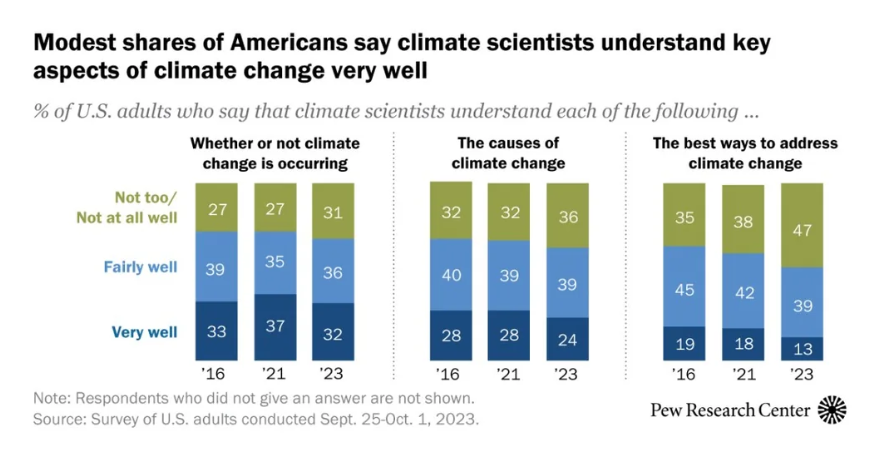
1. Americans Continue to Have Doubts About Climate Scientists’ Understanding of Climate Change
Only about one-third of Americans think climate scientists believe climate change is happening, and only about a quarter think they understand its effects, causes, and solutions, according to a Pew Research Center survey. These ratings have declined slightly from previous years. Specifically, the percentage of those who think scientists understand whether climate change is occurring dropped from 37% in 2021 to 32% this year.
Similarly, belief in their understanding of the causes of climate change decreased from 28% to 24%, and only 13% think scientists understand the best ways to address it, down from 18% in 2021. These opinions are strongly influenced by political affiliations, with Democrats expressing more trust in climate scientists than Republicans. There’s also a divide on the influence of climate scientists in policy debates, with half of Americans feeling they have too little influence. This issue also reflects significant partisan disparities.
Thank you for your generous gift that will help us continue the production of this weekly, free publication

2. Newly Elected US Speaker, Mike Johnson, Has Pro-Oil, Climate-Skeptical Record
Newly minted House Speaker Mike Johnson (R-La.), who won the gavel Wednesday after three prior Republican nominees failed to reach a majority, is a longtime ally of the oil industry and will be perhaps the most vocal skeptic of the scientific consensus on climate change ever to hold the speakership.
Johnson, whose district includes the onetime oil industry hub of Shreveport, received a 100 percent rating from the pro-fossil fuel American Energy Alliance in 2022, along with every other Republican in Louisiana’s House delegation.
Individuals and PACs associated with the oil and gas industry have donated $23,800 to Johnson in the 2023-2024 campaign cycle, the largest amount he received from any group save retired donors, according to data from OpenSecrets.org. In the 2021-2022 cycle, the sector donated $84,350.

3. Ocean Pollution to Rise 274% by 2050: Business Waste Reduction Tips
In 2020, data confirmed that there are 1,223,850 tonnes of waste disposed of in the ocean, with future predictions standing at a rise of 60% by 2030, 147.4% by 2040, and 274% by 2050. Only 3% of packaging is not wasted. Packaging generates 141 million tonnes of plastic waste, reflecting a 96.58% wastage rate. Furthermore, inadequate recycling infrastructure and improper waste management services, lead to plastic packaging being dumped in marine environments. How can your business reduce its waste consumption? Karl Bantleman at Direct365 has provided five simple tips to guide you: 1. Limit the usage of unnecessary single-use plastics. 2. Reduce printing and paper consumption and switch to digital when possible. 3. Encourage eco-friendly habits within your workplace. 4. Ensure waste is disposed of responsibly and correctly. 5. Transparency
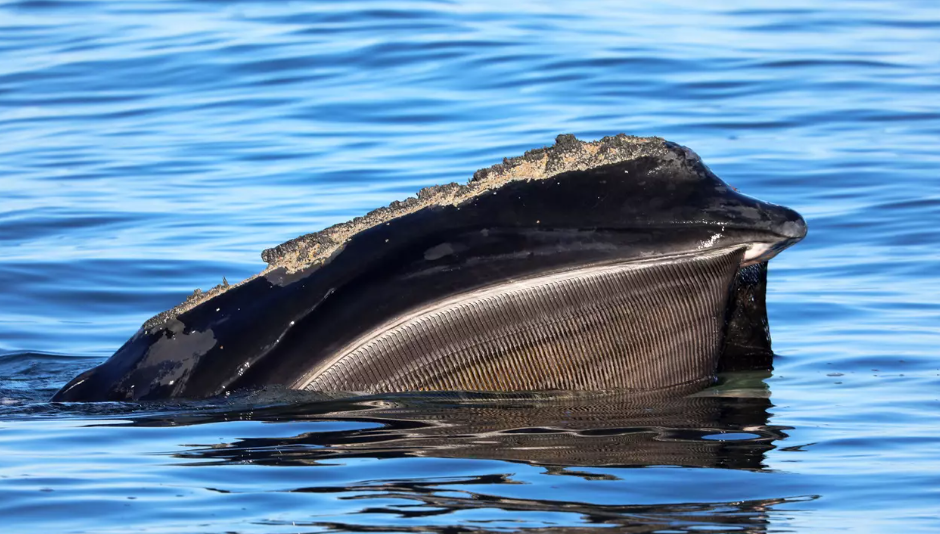
4. North Atlantic Right Whale Data Urges Conservation
The North Atlantic Right Whale Consortium released its official population estimate of 356 individuals. These latest numbers reflect a more accurate UME count based on new, peer-reviewed scientific and veterinary protocol. IFAW and other stakeholders are working to meet the needs of whales and a healthy ocean ecosystem by partnering with fishing communities and mariners to advance pragmatic solutions.
IFAW is developing methods to save injured and entangled whales at sea and this is the only project on the US East Coast with the equipment and experienced personnel to deliver medications to fight infections caused by extensive injuries or sedatives to calm right whales so they can be disentangled. Additionally, by performing necropsies on stranded right whales, IFAW’s experts can determine causes of death and assess whale health.

5. Goodbye Glitter? A Bid to Save Sparkle (and the ENVIRONMENT)
Glitter, the iridescent source of joy responsible for those viral social media posts that consumer’s eyes get glued to, maybe losing its sparkle—and with concern about the health effects of microplastics in the lungs and bloodstream, it’s not just the oceans that want to be saved from sparkles washing down the drain after a long night out. These microplastics can end up in our oceans, our soil, and our bodies.
The European Commission has banned microplastics in cosmetics as part of the European Green Deal’s aim to make the EU climate-neutral by 2050 and reduce the 42,000 tons of microplastics added to products every year. The initiative could result in a 7% reduction in microplastic pollution as well as the reduction of plastic pellet pollution by 74% by the end of this decade. Now glitter is on the chopping block.

6. Man Fined $50K in Vermont for Illegally Importing Carvings Made of Sperm Whale Teeth, Walrus Tusk
A California man has been fined $50,000 in Vermont for illegally importing carvings made from sperm whale teeth and walrus tusks across the U.S.-Canadian border, federal prosecutors said. The man and his wife arrived at the Highgate Springs border crossing after buying nine Inuit carvings from an art gallery in Montreal. He told a U.S. Customs and Border Protection officer that he was bringing back one stone statue from Quebec.
The officer inspected the trunk and found nine statues, including four made of ivory, the Vermont U.S. attorney’s office said. The man admitted that the four were made from walrus tusk and Customs and Border Protection seized them. The U.S. Fish and Wildlife Service later determined that three of those carvings were made of sperm whale teeth and the fourth was made of walrus tusk.
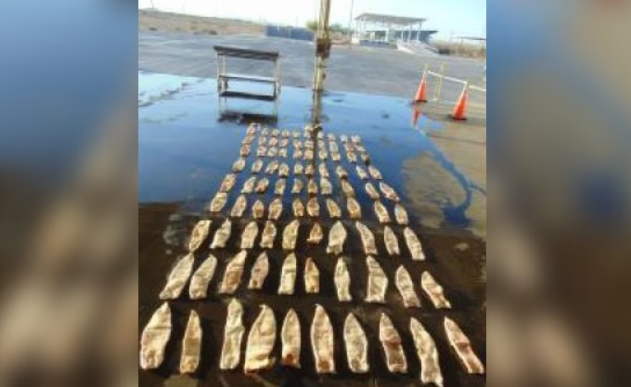
7. Customs Officers Seize Over $1 Million Worth of Endangered Totoba
U.S. Customs and Border Protection seized 109 pounds of Convention on International Trade in Endangered Species of Wild Fauna and Flora and Endangered Species Act-protected totoaba swim bladders at the San Luis Port of Entry in Arizona. They are estimated to be valued between $910,000 to $1,365,000. Totoba fish have been listed as an endangered species since 1979, the feds said, according to KTVK.
They are used in Chinese medicine and as an Asian delicacy. It is illegal to take, possess, transport, or sell totoba in the United States and Mexico because they are a protected species. A single totoba swim bladder is worth around $5,000 on the black market in the United States and about $10,000 in some countries in Asia, the U.S. Attorney’s Office said, according to the news station.
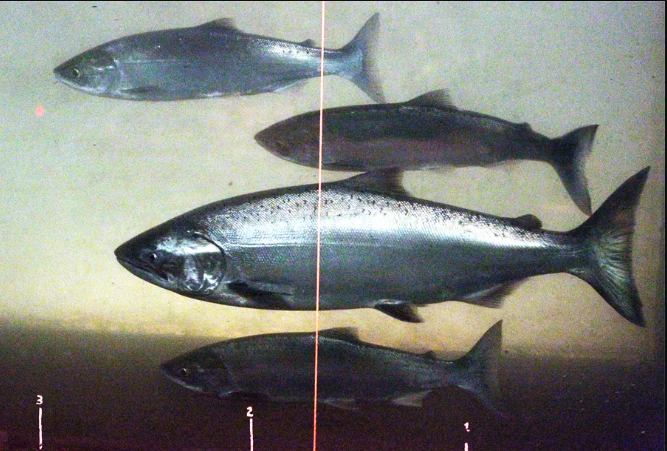
8. Feds Consider Listing Oregon’s Chinook Salmon as Endangered
The National Marine Fisheries Service has accepted a petition filed by environmental groups seeking to list Oregon’s Chinook salmon populations as threatened or endangered under the Endangered Species Act. The petition, filed in unison by the Native Fish Society, Center for Biological Diversity, and Umpqua Watersheds, states that spring-run Oregon Coast Chinook and Southern Oregon and Northern California coastal Chinook salmon populations have declined significantly.
The National Marine Fisheries Service announced on Jan. 11 that it has agreed to consider the petition after reviewing the submission for 90 days. “Based on information provided by the Petitioners, as well as information readily available in our files, we find that a reasonable person would conclude current demographic risks indicate that Oregon Coast Chinook salmon may be at risk of extinction and thus their status warrants further investigation,” NOAA Fisheries stated in the agreement to consider the petition.
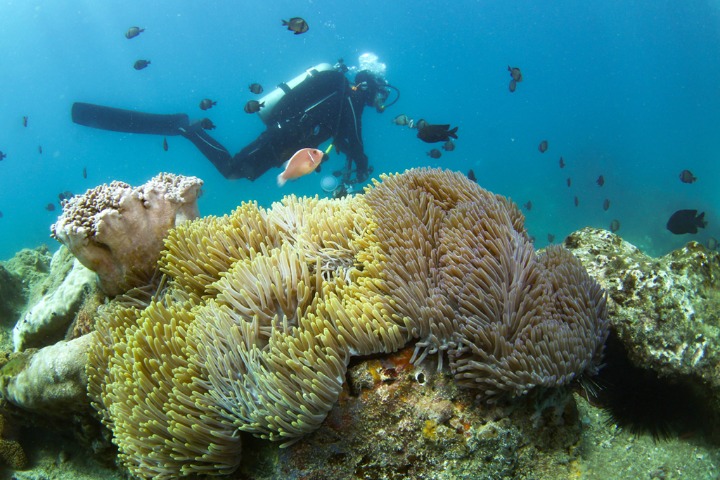
9. China Revises Law to Better Protect Marine Environment
Chinese lawmakers adopted a revised Marine Environment Protection Law amid the country’s push for ecological conservation and maritime development. Consisting of nine chapters, the newly revised law highlights prioritizing protection and tackling problems at their source, as well as coordinating activities on land and at sea to protect the ocean environment. It specifies the responsibilities of relevant departments and localities to advance the system for managing the ocean environment.
In addition underscores the protection of marine biodiversity, with improved provisions on enhancing its surveying and assessing system, as well as on maintaining and restoring important marine ecological corridors. With a focus on pressing issues faced by the marine environment, the law also stresses strict control over pollution by prohibiting the dumping, stacking, and disposal of solid waste on the shore, and requires that measures be taken to prevent solid waste from entering the sea.
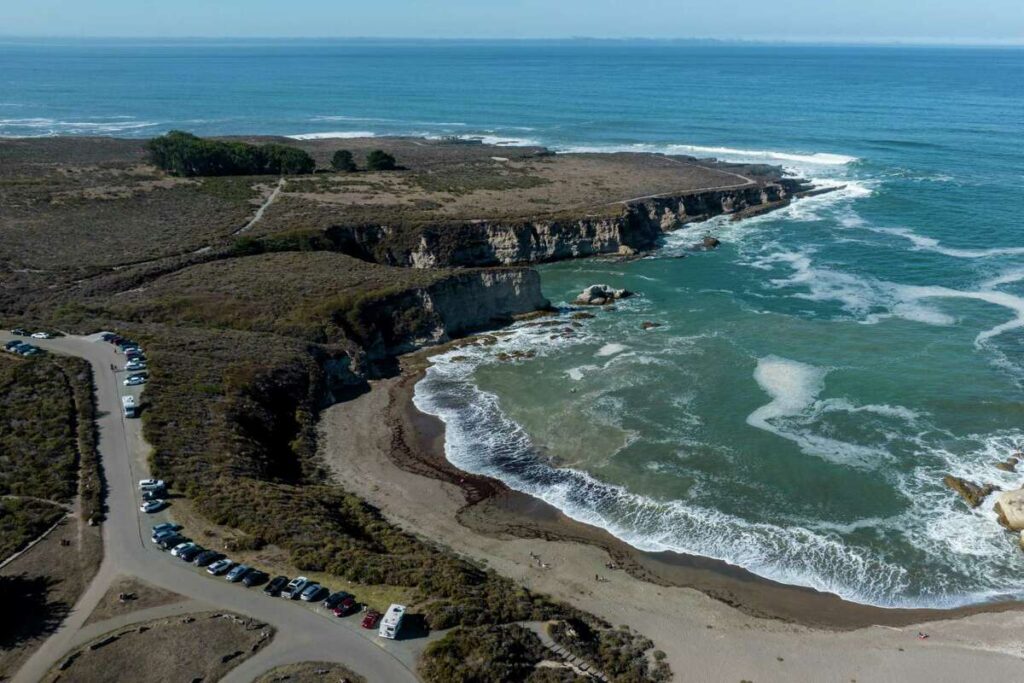
10. California’s ‘Galapagos’ Set for Major Protection
A beautiful and ecologically rich stretch of the California coast is about to get major protection: a new national marine sanctuary that would preserve 5,617 square miles of the ocean along the San Luis Obispo and Santa Barbara County coast. The proposed Chumash Heritage National Marine Sanctuary aims to honor the Indigenous people who have lived in the area for tens of thousands of years.
President Biden endorsed it, and if finalized it will be the first marine sanctuary nominated by Indigenous groups and the first in California in 30 years. The sanctuary’s proposed boundaries and even its name, both sources of controversy among some tribal groups, aren’t yet final, and the public can still make comments on the draft proposal. After public review is complete, the National Oceanic and Atmospheric Administration hopes to have a final designation for the sanctuary by summer.
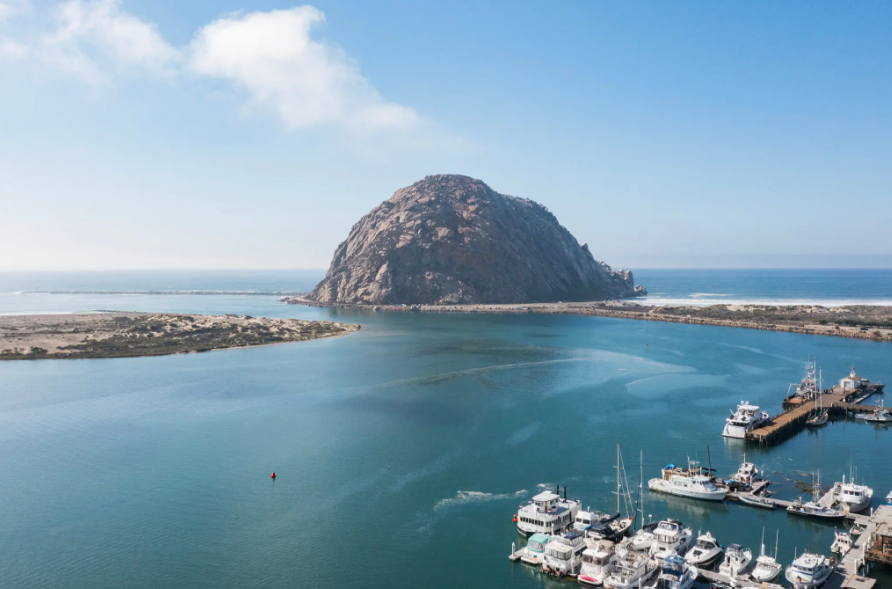
11. Clean Energy, Cherished Waters, and a Sacred California Rock Caught in the Middle
The proposed Chumash Heritage National Marine Sanctuary, led by the Northern Chumash tribe, seeks to protect 7,573 square miles of California’s Central Coast. It would connect existing marine sanctuaries covering over 20,000 square miles. This initiative could set a precedent for Native American co-management of public lands and waters. However, a proposed offshore wind energy project might alter the sanctuary’s boundaries, raising concerns about preserving Chumash cultural sites.
NOAA’s recommendation could exclude Morro Bay and Morro Rock, which hold cultural significance. The Chumash tribe has conducted extensive outreach and reviews, but NOAA’s proposed changes could impact the sanctuary’s core values. The sanctuary’s future, balancing clean energy and conservation, is uncertain. Public comments on the issue are crucial before final designation and Congressional review. The sanctuary could promote eco-tourism and sustainability but faces challenges in its development..

12. Entrepreneur Reduces Plastic in Health Food Packaging
Ms. Burns came up with the idea for We Bar None, which specialises in gluten-free, vegan energy bars, in 2013. Now she’s turned to packaging and makes her wrappers 100 percent compostable. Before moving to compostable packaging, she experimented with wrapping her bars in baking paper and recyclable plastic pouches. Hers was just the third business in Australia to make the environmentally-friendly transition.
According to Australia’s national science agency, the CSIRO, there is a desperate need to combat the growing mountain of plastic in our waterways. For every metre of coastline across the globe there’s the equivalent of seven grocery bags full of rubbish. And soft plastics, such as food packaging, are the biggest killer of marine life. Three-quarters of the rubbish found on Australian coastlines are plastics, according to the CSIRO.
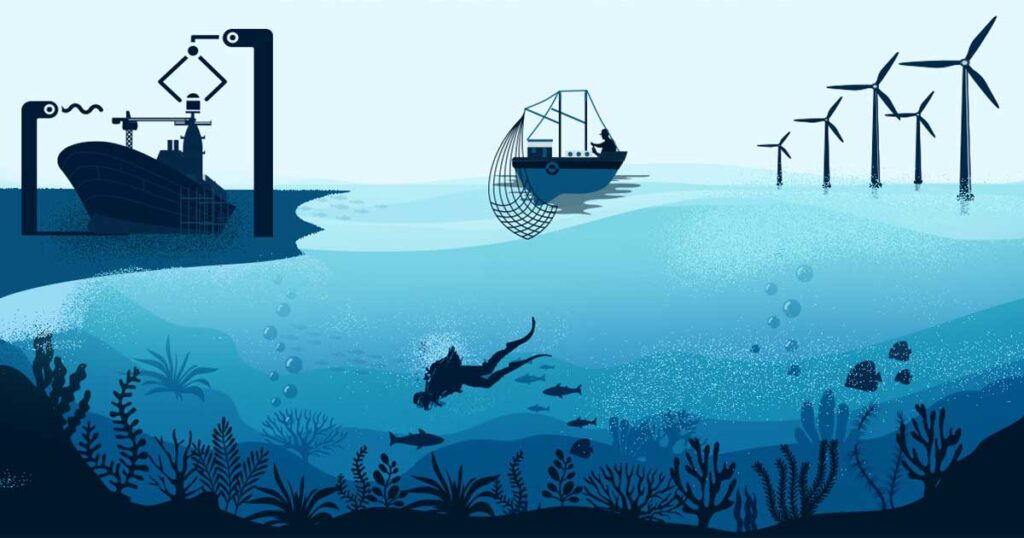
13. Fueling India’s Marine Economy
This editorial discusses how India can benefit from blue bonds. The Indian Ocean is home to a vast array of marine life but is also under increasing pressure from pollution, overfishing, and climate change. A new set of guidelines released by the United Nations Environment Programme Finance Initiative (UNEP FI) could help unlock the financing needed to protect and restore the Indian Ocean.
Blue bonds have the potential to make a significant contribution to the sustainable development of the Indian Ocean. For India, the opportunities include food security, poverty alleviation, and employment generation for millions of people who depend on ocean resources for their livelihoods. The challenges include a lack of infrastructure and marine pollution. Measures, including developing a national accounting framework, to strengthen India’s marine economy.

14. 337-Million-Year-Old Shark Fossils Found in US National Park
Recently, a team of paleontologists, cave specialists, and park rangers unearthed a collection of fossils that remarkably turned out to be of North America’s most diverse Missipian shark faunas. Some of the species have never been heard of before. In this compelling new revelation, researchers identified 40 distinct shark species and their relatives, including six previously unknown ones. The species were found at the Mammoth Cave National Park in Kentucky.
According to Popular Science, scientists excavated Strigilodus tollesonae, an ancient species dating back 337 million years, which belongs to the petalodont shark family. This extinct shark is described by its petal-shaped teeth. This unique fossil preservation provided paleontologists with unprecedented insights into the anatomy and relationships of the ancient sharks. These well-preserved shark fossils are very rare because sharks have cartilage skeletons instead of bones, making them less likely to fossilize.

15. Oil Firm Eyes Democratic Republic of Congo Amid Track Record Criticism
In the two decades since the multinational Perenco established operations at the mouth of the Congo River, surrounding communities have suffered the loss of the natural resources they depend on for a living. Now, the company is bidding on two new oil blocks in the Democratic Republic of Congo. Critics of its environmental record say it should not be allowed to expand. In 2022, a local NGO published a report documenting dying trees, cassava rotting in the fields, and the disappearance of terrestrial and aquatic species.
The report blamed Perenco, the operator of the DRC’s only oil production facilities. Perenco strongly denies the accusations of environmental damage. “This is false and defamatory. Some incidents, very often due to sabotage, may happen. They are limited to less than a barrel each and are always cleaned up in situ,” the company said in a statement emailed to Mongabay.
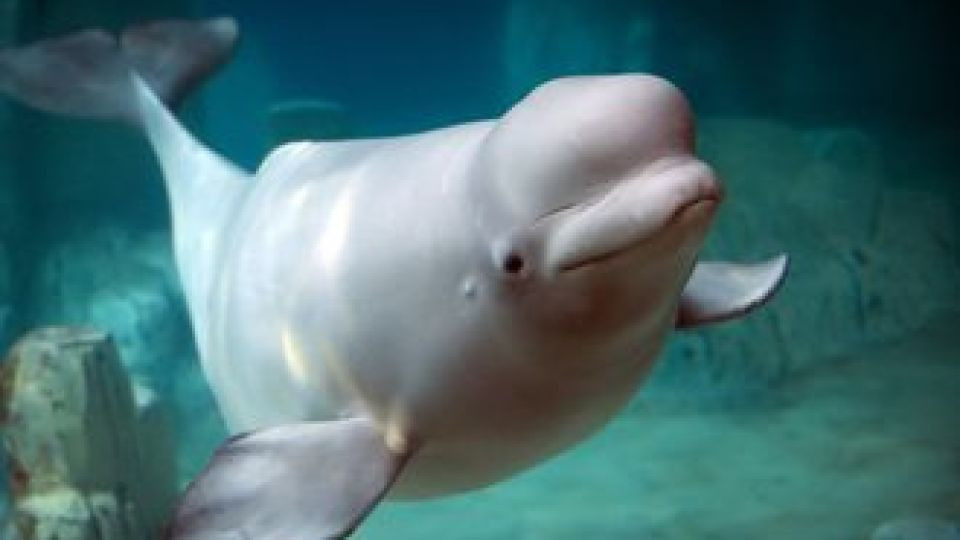
16. Lotte Aquarium vs. Activists: Beluga Whale Release Dispute
Lotte World Aquarium vowed to move a beluga to a wildlife sanctuary by the end of 2022 but has yet to do so, leading to clashes with activists. Most recently, the aquarium filed charges against a local marine animal rights advocates’ group in Seoul for holding a protest within its premises. Lotte World Aquarium had acquired three belugas from Russia, but two of them died in 2016 and 2019.
The company vowed to move Bella to a wildlife sanctuary by the end of 2022 but has yet to do so. Koh Jeong-rak, chief of the Lotte World Aquarium, said the company had attempted to release Bella on three separate occasions but failed each time because another species had been occupying the area at the time; a delay caused by the COVID-19 outbreak, and because the earlier occupant had health issues.
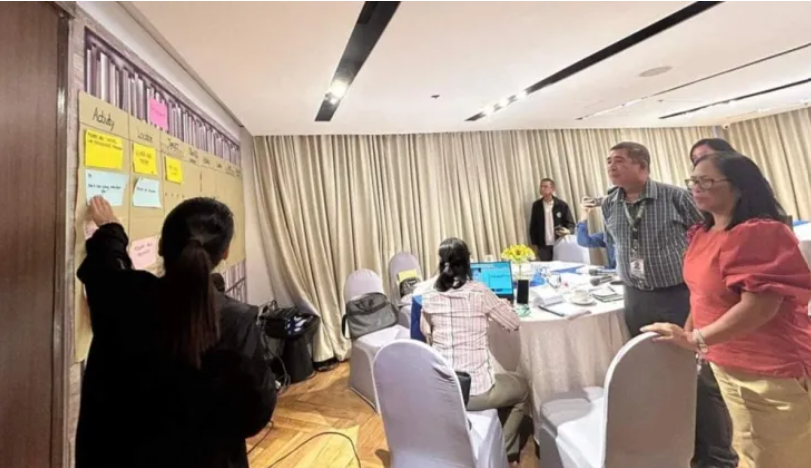
17. Palawan, Philippines Workshop Boosts Marine Conservation Collaboration
The Office of the Provincial Agriculturist (OPAg), in partnership with USAID Fish Right and GRF INSPIRE, spearheaded the “PGP and NGO-Partners Planning Workshop” held on Wednesday, October 18, at Hue Hotel in Puerto Princesa City.
The workshop brought together select individuals from various provincial government offices, and Non-Government Organizations (NGOs). The main objective of the training was to formulate a unified schedule for the implementation of programs and activities related to Coastal and Marine Management in the province.
Among the topics discussed was the list of activities for the last quarter of 2023. Participants also deliberated on strategies to enhance the collaboration between the Provincial Government of Palawan (PGP) and NGOs, focusing on the operation and sustainable management of Marine Protected Areas (MPAs) and the Marine Protected Area Network (MPAN), enforcement of fishery laws, livelihood programs, IEC/capacity-building initiatives, research and development, and more.
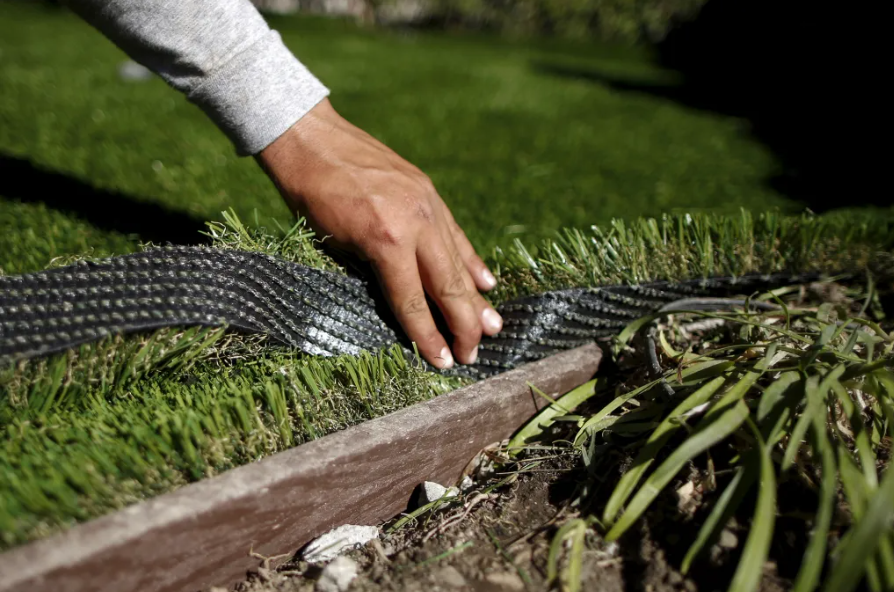
18. New California Law Allows Local Gov’t to Ban Synthetic Grass
Fake grass looks good and unlike real grass, synthetic lawns don’t turn brown and don’t need water. But looks can be deceiving.Gov. Gavin Newsom signed a bill that allows local governments to ban synthetic grass in residential areas.
This reverses part of a 2015 bill that stripped them of that power. At the root of some of these concerns are some chemicals like PFAS, also commonly referred to as “forever chemicals.”Many researchers link these substances to serious health issues like kidney problems, cancer, and decreased immune system functions. PFAS can be found in food, and water systems, and are very resistant to breaking down.
Research is ongoing to understand how much exposure can lead to specific problems. Other concerns include plastic pollution in water runoff and extreme heat. Synthetic options tend to heat up significantly more than natural alternatives.
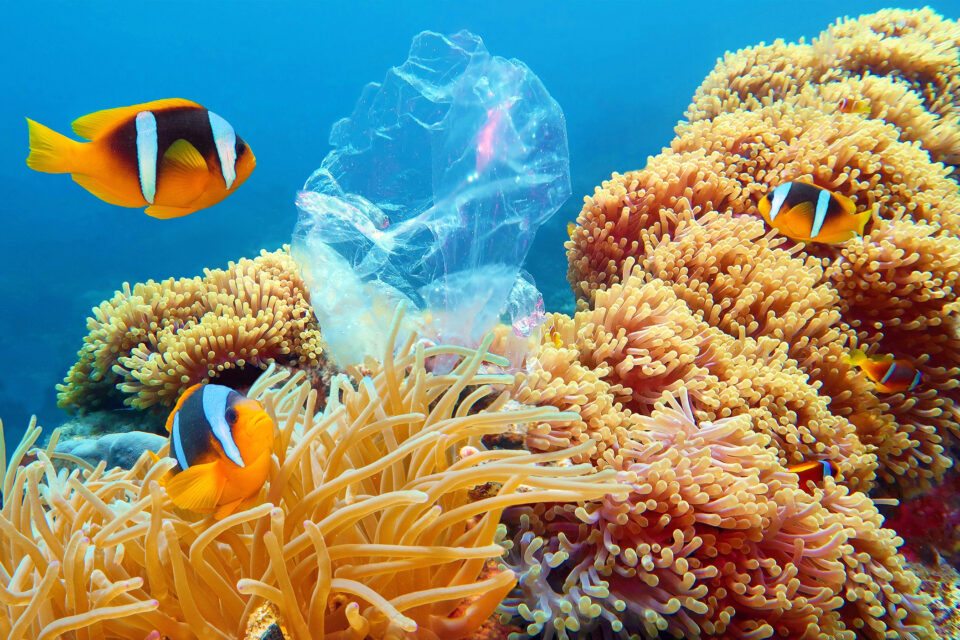
19. Even Biodegradable Plastic Is Harmful to Fish Populations
In a disturbing revelation that challenges long-standing solutions to plastic pollution, a study from the University of Otago indicates that biodegradable plastics still pose a threat to aquatic life. The investigation, the first of its kind delves into the comparative impacts of different plastic types on marine inhabitants. Ashleigh Hawke, from Otago’s Department of Marine Science, was lead author of the study.
Her research evaluated how exposure to conventional petroleum-derived plastics and biodegradable counterparts affect various aspects of fish physiology and behavior. It was discerned that petroleum-based plastics significantly hampered several facets of the fish’s daily functions.
These include their escape performance, routine swimming patterns, and overall aerobic metabolism. In summary, the study presents a stark reminder that solutions to environmental issues are seldom clear-cut. Biodegradable plastics, once the beacon of hope in the fight against plastic pollution, are now under scrutiny.
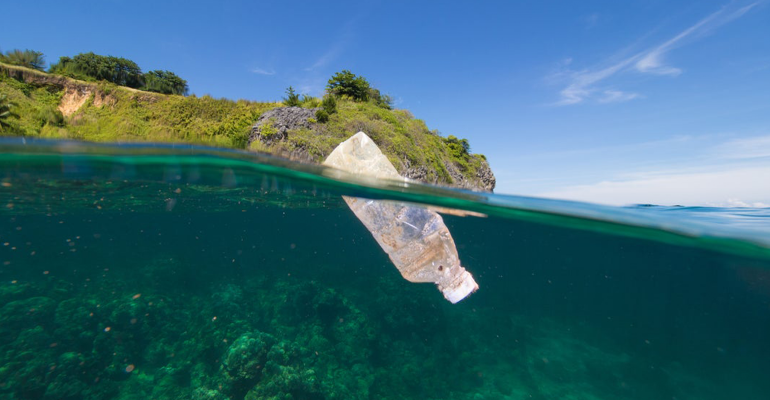
20. UK Govt. Backs Ocean Plastic Leadership Network’s Continuation of Treaty Dialogues on Plastic Pollution
The Ocean Plastics Leadership Network (OPLN) is pleased to confirm that the UK Governments Department for Environment, Food & Rural Affairs (Defra) has agreed to continue the UK National Treaty Dialogues on Plastic Pollution programme and will match funding contributed by industry donors including Unilever, Nestle and The Coca Cola Company.
The programme will continue in accordance with the UN Plastics Treaty schedule (2022-2025). This multi-stakeholder engagement initiative fosters cross-sector collaboration in shaping the UK’s approach to the UN Treaty on Plastic Pollution. The UK National Treaty Dialogues programme brings together key stakeholders from all facets of the plastics lifecycle, including upstream (plastic production), midstream (manufacturing, retail, and distribution), downstream (waste management), environmental non-governmental organisations, and academia.
The next round of the UK National Dialogues are scheduled to run from 20th October 2023 to 1st November 2023, in preparation for INC-3, taking place in Nairobi, Kenya.
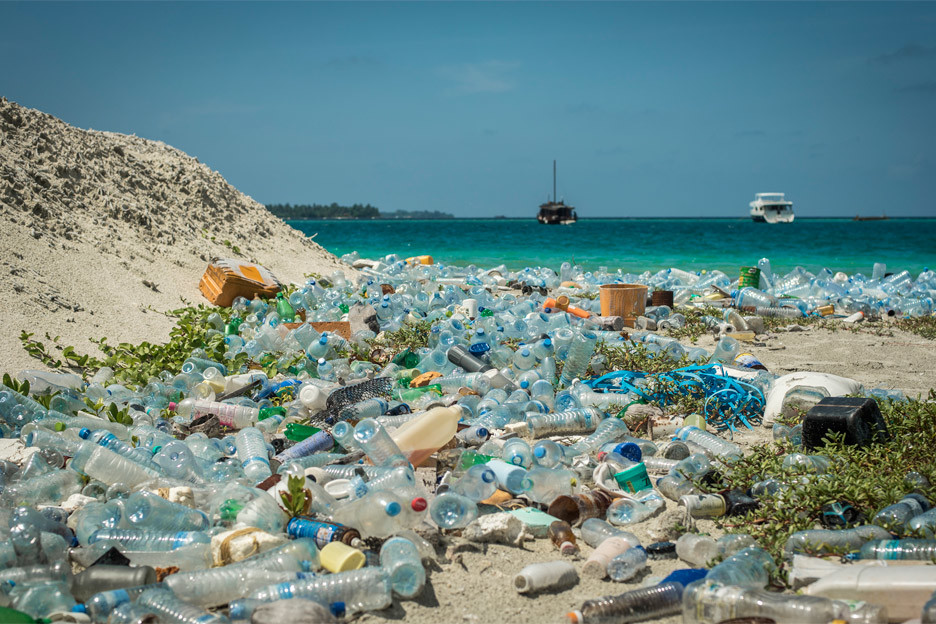
21. Nigeria Conservation Foundation Promotes Solutions to Sustainability & Plastic Pollution
The Lagos State Government has partnered with the Nigeria Conservation Foundation to stage the Annual ‘Walk for Nature” event to raise awareness of solutions to plastic pollution and promote environmental sustainability. The theme is “Solutions to Plastic Pollution” and the event was held during the weekend in three different locations in Lagos.
The Commissioner of the Environment and Water Resources, Mr Tokunbo Wahab said that the event showcases the implementation of policies and programme of the state government on environmental protection and natural resources conservation. According to Wahab, “The aim is to provide the opportunity to sensitise individuals, enterprises and communities in preserving and enhancing the environment and trigger an alarm on the increasing global threat to the sustainability of the environment especially as it affects Sustainable Development Goals (SDGs) 11, 12, 14 and 15 through the use of plastics.
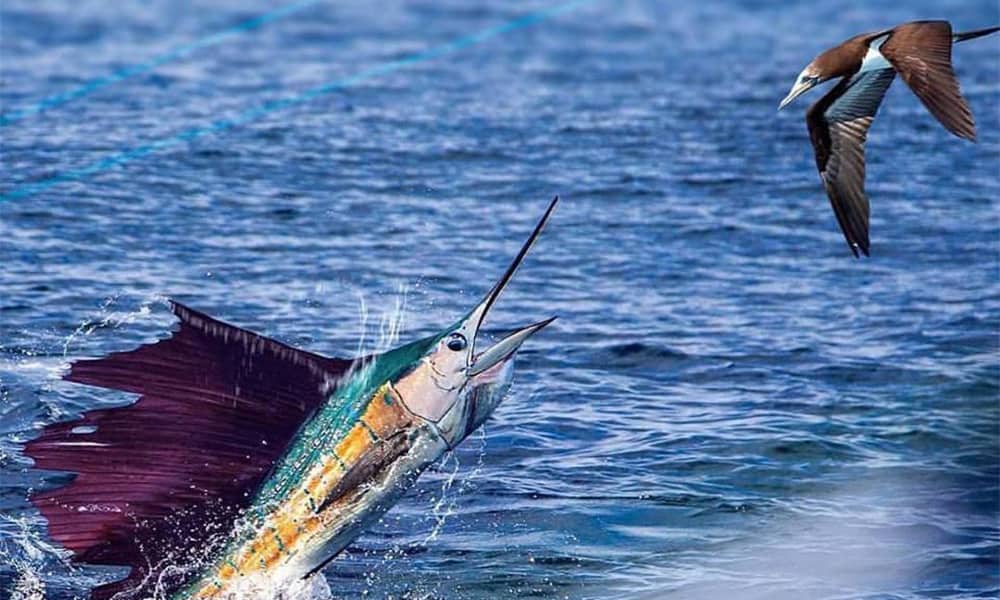
22. Sport Fishing Tourism in Costa Rica Gets a Win… Maybe
Thanks to public pressure from Congresswoman Kattia Cambronero and sport fishing lobby group FECOP, Incopesca reversed the suspension of a regulation that allowed all commercial fleets to catch bait in the country’s three Pacific gulfs.
The suspension of the regulation also allowed the use of live bait within a 30-mile radius of the coast, negatively impacting sailfish populations The response from Incopesca – Costa Rica’s sport fisheries governing board – happened in record time and seems to be positive, however, there are concerns about potential loopholes and ambiguities.
This highlights the need for stronger, more clearly defined regulations to protect marine ecosystems and species in the country. On a higher note, a proposed law in Congress aims to no longer allow the sale of sailfish in Costa Rica, which is the only Central American country that currently allows it.

23. Communities Can’t Recycle or Trash Disposable E-Cigarettes. So What Happens to Them?
Growing popularity of disposable e-cigarettes in the U.S. has brought about a new problem – how to safely get rid of these small, battery-powered devices considered hazardous waste due to their nicotine and lithium content. Under federal environmental law, they aren’t supposed to go in the trash, yet we know tens of millions are thrown away each year. Local officials are finding ways to deal with the issue.
In Monroe County, New York, over 5,500 e-cigarettes were packed into drums and shipped to an industrial waste incinerator in Arkansas. This may not seem environmentally friendly, but it keeps the nicotine-filled devices from polluting sewers and landfills. Critics argue that the vaping industry needs to take more responsibility for the environmental impact of its products. A potential solution is to enforce recycling-friendly standards for e-cigarettes or require manufacturers to fund collection and recycling programs.
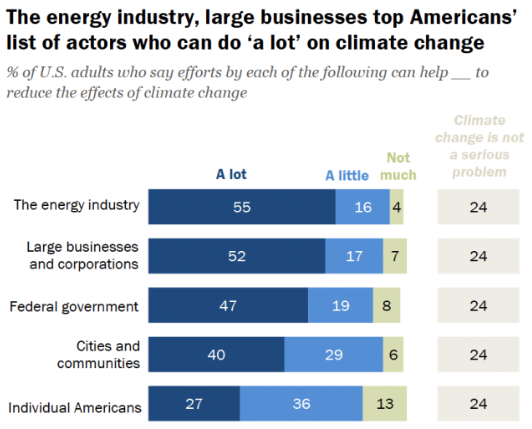
24. 49% of Americans Think Climate Change Is Mostly Someone Else’s Problem
Nearly half of Americans think individuals can’t make much of an impact on climate change, according to a Pew Research Center survey. While 55% see the energy industry and 52% think large businesses and corporations can mitigate change, only 27% feel individual Americans’ efforts can help “a lot.” This viewpoint may reflect the difficulty people have in making the trade-off between short-term and long-term benefits, according to psychology professor Art Markman.
He notes, “People conceptualize things that are psychologically distant from them (in time, space, or social distance) more abstractly than things that are psychologically close.” In other words, climate change is a future problem that does not necessitate immediate action. Therefore, highlighting the immediate benefits of actions like switching to electric vehicles or installing solar panels, especially money saved by doing these things, can be a more effective way to encourage individual contributions to fighting climate change.




